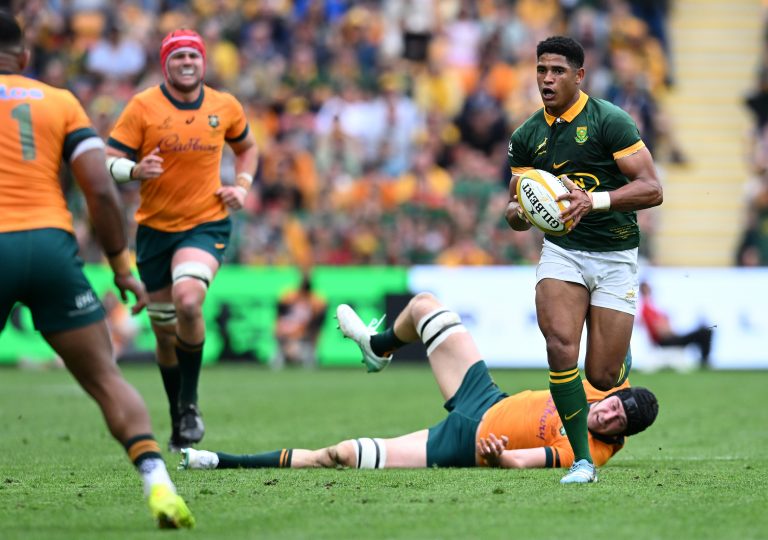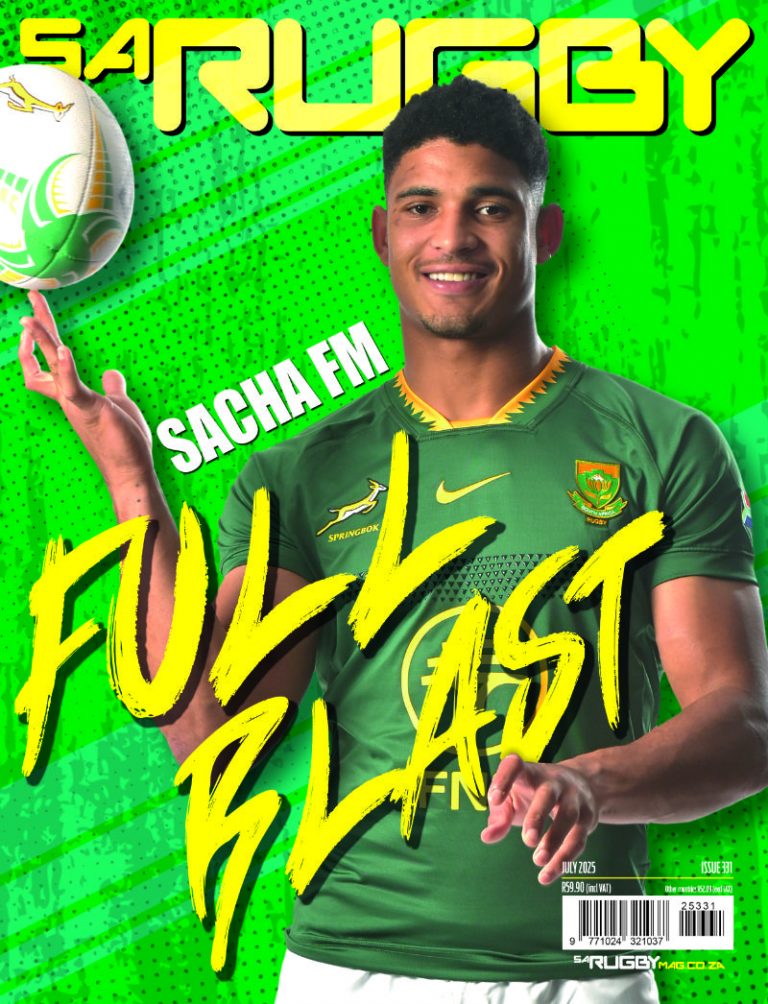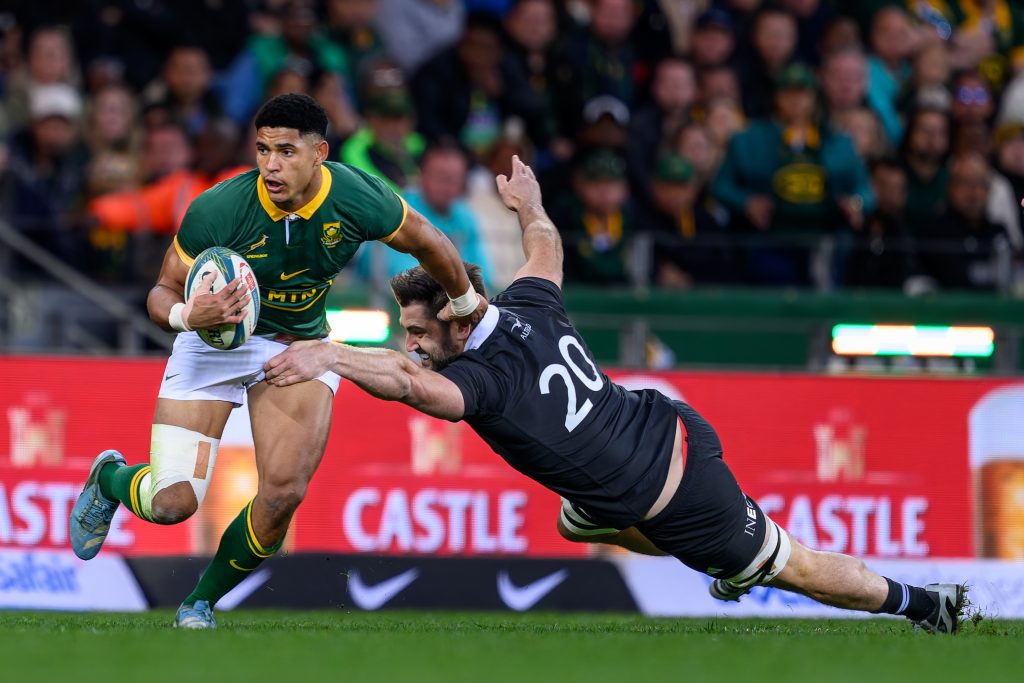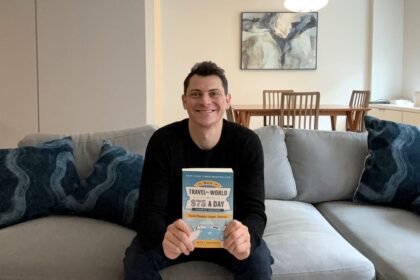Sacha Feinberg‑Mngomezulu can become rugby royalty. I’ve watched and reported on the careers of every Test flyhalf since the Springboks returned to international rugby in 1992, and he is super special, writes Mark Keohane.
I’ve written on every professional No 10 since 1996. I’ve travelled the globe and sat in stadiums from Pretoria to Paris, from Dunedin to Dublin. And if there’s one position that defines a generation of rugby watchers, it’s the No 10 jersey.
England’s Jonny Wilkinson remains an icon. His 2003 World Cup‑winning wrong‑footed drop goal has been replayed a thousand times, but it was his obsession with preparation and his defensive steel that made him special.
Morné Steyn had that same ice‑cold temperament for the Springboks, as does Handre Pollard with two World Cup gold medals and a 100‑plus Test record still unfolding. Steyn scored 31 points in a Test against the All Blacks and beat the British & Irish Lions to secure the Springboks the Test series in 2009 in Pretoria and 2021 in Cape Town.
Jannie de Beer kicked five drop goals against England in the 1999 World Cup quarter‑final in Paris, and André Pretorius kicked four drop goals against England at Twickenham and an angled penalty to beat the All Blacks in the final minute at Rustenburg. It all happened in 2006.
Then there is the 1995 World Cup‑winning drop‑goal master Joel Stransky, who a year later scored all 25 points in the Boks’ win against the Wallabies in Bloemfontein; Butch James, wearing No 10 with such authority in the World Cup‑winning final against England in Paris in 2007; and one of my early favourites, Henry Honiball.
New Zealand’s Andrew Mehrtens had touch and timing that few matched. Australia’s Stephen Larkham was the flyhalf who redefined instinctive play without ever saying much. And he kicked the most famous drop goal in Wallabies World Cup history, against the Springboks in the 1999 semi‑final at Twickenham.
All Blacks No 10 Carlos Spencer was a magician – a player who defied convention for the sake of joy.
England’s Owen Farrell is a Sir. Give him a knighthood. He’s a warrior, a leader and a metronome in the big moments.
Ireland’s Johnny Sexton and Ronan O’Gara put Ireland at Test rugby’s top table.
Scotland’s Gregor Townsend was unorthodox and a genius before it was trendy. Finn Russell today is the closest we’ve come to reviving that free‑thinking flyhalf spirit.
Gareth Anscombe’s touchline conversion in 2022, to beat the Boks for the first time ever in South Africa, wrote his name into Welsh rugby folklore. Dan Biggar, with 115 Tests, gave Wales backbone and bite. Stephen Jones was as influential for Wales.
France’s flyhalves have always delivered flair and enterprise. Frédéric Michalak was all theatre, and Romain Ntamack is a combination of flash and function.
All Blacks Beauden Barrett, Aaron Cruden and Richie Mo’unga are all world‑class flyhalves. Barrett, at his peak, was untouchable on the run. Cruden had vision, calm and the most underrated presence in Test rugby. Mo’unga is a wonderful all‑round Test No 10.
Their All Blacks predecessor Dan Carter is the most complete flyhalf I have ever seen in the professional era
Carter played the game as if he was never in a hurry. The pass, the kick, the run – always in sync. He could play 10 or 12. He could tackle like a loose forward. And he did it all with the poise of someone who looked immune to the pressure and pain of Test rugby.
Carter owns the record for most Test points scored (1 598), but his goal kicking was a given. What completed him was every aspect of his game.
When people ask who the best is that I have seen – the best of the best – I don’t hesitate: Dan Carter.
Sacha Feinberg‑Mngomezulu is Carter‑like. Don’t read this as me thinking he is a Carter impersonator; rather, he has every quality that Carter showed in a 112‑Test career.

That is the potential of Feinberg‑Mngomezulu. That is why the hype is justified, even if the coronation is premature.
Carter won two World Cups and got to 112 Tests in a 15‑year Test career. He won everything there was to win, at every level. He wrote his own coronation at Twickenham in the 2015 World Cup final win against Australia.
Feinberg‑Mngomezulu is into his second year of Test rugby. He has been anointed, but the royal capping will only come with his last act in Test rugby.
Hopefully, for pure pleasure and spectator joy, his is a Carter‑type 15‑year Test career.





